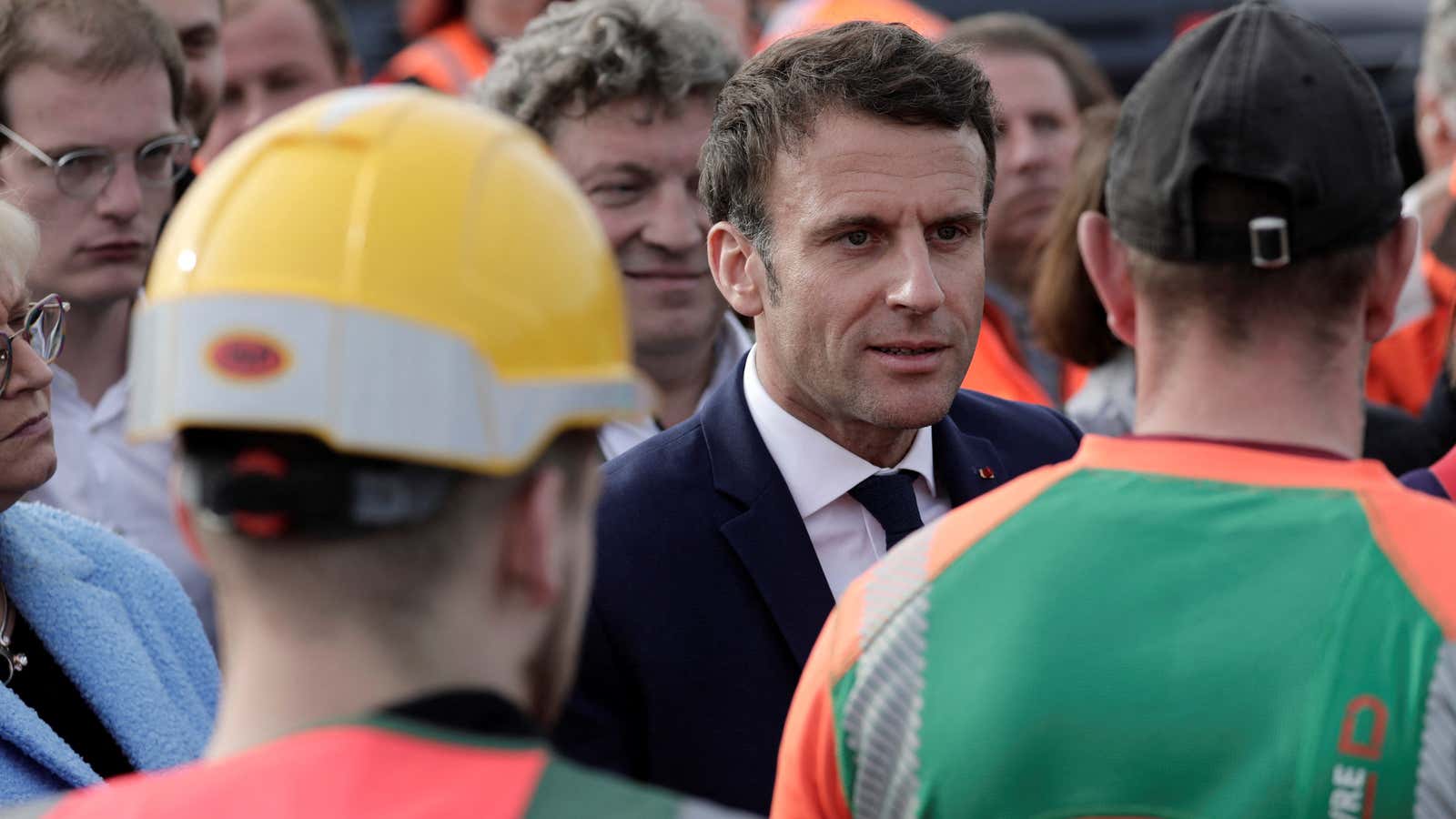French president Emmanuel Macron will face off against far-right candidate Marine Le Pen in this year’s election after winning more than 28% of the vote in the first round yesterday (April 10). The second round will take place in two weeks, on April 24.
France’s stocks reacted positively to Macron’s lead, edging upward on news of the first round results. A win is far from certain for the presidential incumbent, however, who handily beat Le Pen in the 2017 election but has hardly campaigned this year. Macron chose an economically depressed, Le Pen-supporting town for his first campaign stop after yesterday’s vote, signaling a shift in strategy.
Macron campaigning in “left behind” regions
Macron didn’t officially declare his candidacy until March 3, and in the month leading up to the first round he only left Paris to campaign twice.
The president traveled north to Denain today (April 11), one of the poorest cities in France and a Le Pen stronghold. More than 41% of Denain residents voted for Le Pen yesterday, while far-left candidate Jean-Luc Mélenchon garnered support from about 28% of the city’s voters. Macron finished third, with only 15%.
In visiting Denain, a former steel capital where more than a third of the population is unemployed, Macron was aiming “to send signals to the popular electorate that feels abandoned,” says Nicolas Tenzer, chairman of the Center for Studies and Research on Political Decision. “This region is quite emblematic of a part of France that, rightly or wrongly, considers that it is left behind.”
It’s unclear whether Macron convinced Denain voters to turn out for him in two weeks, as residents confronted the president about his policies on vaccination, as well as his proposal to raise the retirement age from 62 to 65.
France’s inflation rate and purchasing power are major issues
Much of Macron’s presidential campaign has focused on Russia, as he’s devoted time to diplomatic efforts to change the course of the war in Ukraine. But a majority of voters—57%, according to one recent poll—are more concerned about their diminishing purchasing power than anything else. France’s inflation rate rose by more than 5% from the previous year in March, a record, and Europe’s efforts to move away from Russian energy are causing prices to go up even further.
Le Pen has seized on voter concerns about purchasing power, and gained a leg up over her far-right challenger Eric Zemmour by promising to cut fuel prices. While Macron has started to listen to voters, Tenzer says it was a concern well before this year’s election, made evident through movements such as the yellow vest protests.
“The image, rightly or wrongly, of ‘president of the rich,’ or even of the ‘super-rich,’ sticks to him,” Tenzer says. “He will obviously have to revise his program, but it is to be feared that this will be very difficult to make up in less than two weeks of campaigning.”
